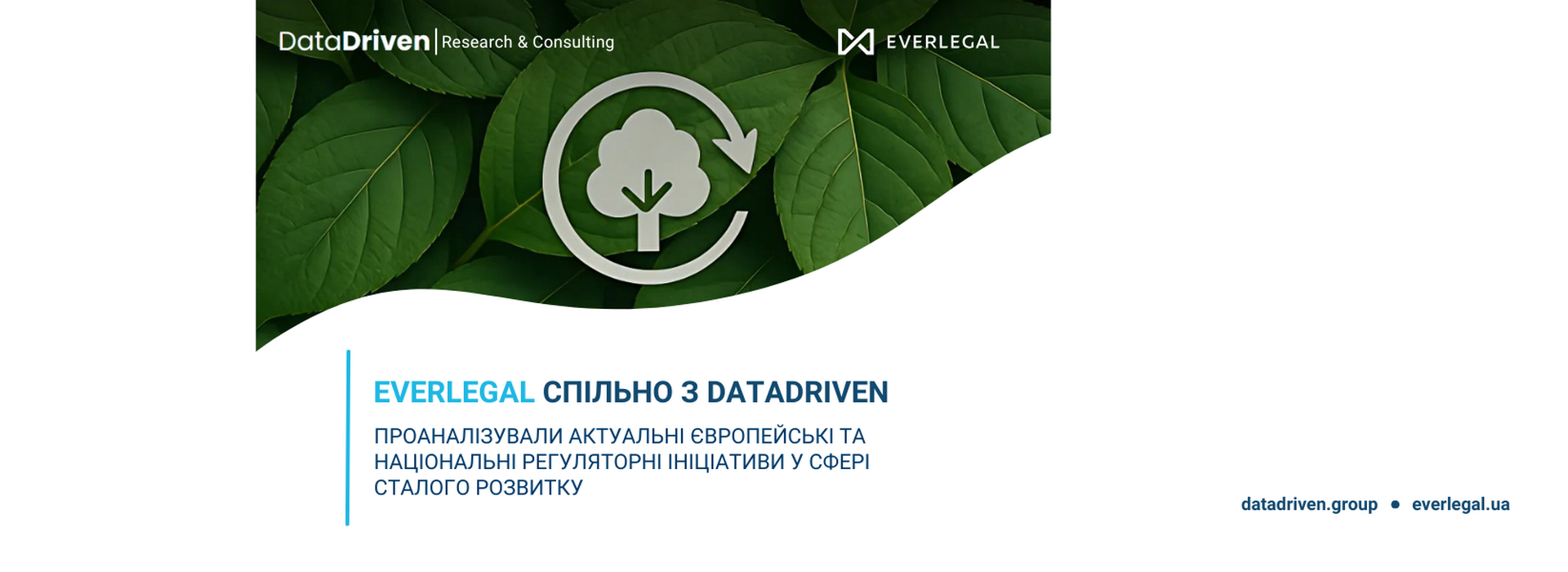The concept of ESG (Environmental, Social, Governance) is increasingly being implemented in both public policy and corporate strategies. It is no longer just a trend in the international business environment: the Ukrainian legislative framework is gradually creating the institutional prerequisites for its implementation.
Experts from EVERLEGAL and DataDriven have prepared an analytical note titled "ESG Time or Omnibus Time: How Do European Regulations in the Field of Sustainable Development Affect Ukrainian Business?" It provides a detailed analysis of how the new wave of European regulatory changes in the field of sustainable development affects Ukrainian companies engaged in foreign economic activity.
The research focuses on the key EU directives and regulations (CSRD, ESRS, CSDDD, CBAM, SFDR, EU Taxonomy), as well as recent deregulatory initiatives known as Omnibus I and Omnibus II, which adjust the timelines and approaches to sustainability reporting in EU member states.
The authors of the analytical note from the EVERLEGAL law firm were partner Oleksandr Ruzhytskyi and Lesya Baginska, a lawyer specialising in environmental compliance and ESG regulation.
The main focuses of the analytical notes are:
- introduction of corporate sustainability reporting in Ukraine in accordance with the CSRD and ESRS, with the expected launch of the regulatory framework in 2025-2026;
- the impact of the Omnibus package on the timing and scope of mandatory reporting;
- risks for exporters in connection with the introduction of the CBAM mechanism (carbon duty from 2026);
- increased requirements to take into account environmental, social and governance risks from European partners and banks.
Recommendations for businesses during the transition period. The policy paper also offers clear steps for companies, including:
- screening activities against the EU Taxonomy criteria;
- development of an ESG compliance system;
- integration of ESG risk management mechanisms;
- preparation for the audit of non-financial statements.
Why it's important
EU regulators are becoming increasingly strict with companies from outside the Union. Ignoring ESG requirements may result in a loss of access to markets, financing, opportunities to participate in international programmes and cooperation with key partners.
The full text of the analysis by EVERLEGAL and DataDriven experts is available at the following link: https://cutt.ly/CrFeCRhd.
EVERLEGAL – PARTNER OF THE FUTURE


























